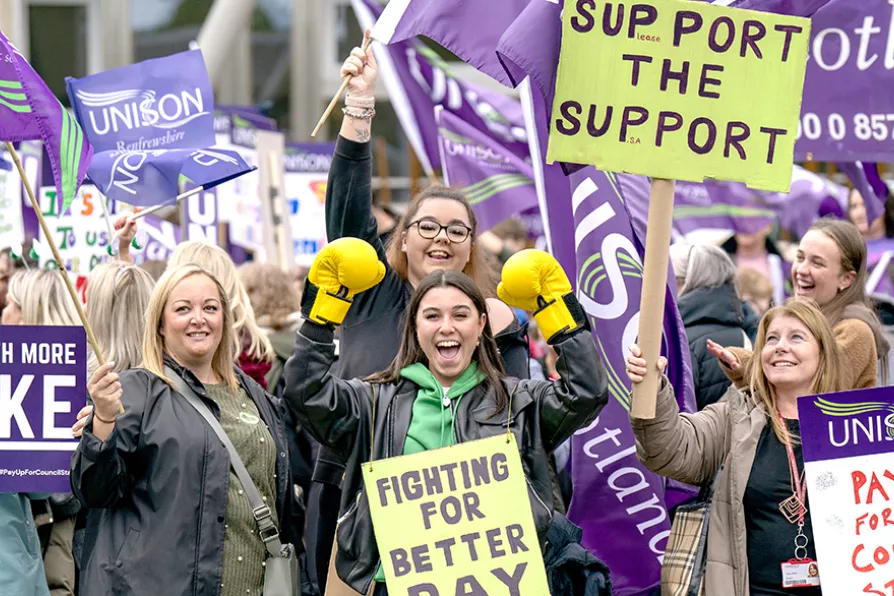Channel 4’s Dirty Business shows why private companies cannot be trusted with vital services like water, says PAUL DONOVAN

 OUT IN THE COLD: School support staff members of Unison during a rally outside the Scottish parliament in Holyrood, Edinburgh. Essential school staff including cleaners, janitors and support workers have been locked in a pay dispute, September 2023
OUT IN THE COLD: School support staff members of Unison during a rally outside the Scottish parliament in Holyrood, Edinburgh. Essential school staff including cleaners, janitors and support workers have been locked in a pay dispute, September 2023
THIS week the Chancellor announced a 5.5 per cent pay rise for the bulk of long-suffering workers across the public sector. Years of below-inflation pay rises and pay freezes have plunged pay downwards.
The so-called “bottom loading” of pay rises has reduced the incentive for experienced public-sector staff to apply for promotions as pay differentials between grades are eroded.
Retention rates in the NHS in particular are plummeting so the hope is that the pay offer will stem the tide of experienced staff leaving the sector.
The major trade unions have broadly welcomed the pay offer — yet hundreds of thousands of public-sector workers will miss out on the pay rise. Why? Because they have been outsourced to private companies and trusts that do not follow nationally agreed pay, terms and conditions for public-sector workers.
School support staff are excluded from the pay award too. Many of these staff are low-paid women with school-age children and they are the backbone of the education system. Many have already suffered brutal attacks on their pay and conditions as more and more schools are converted into Multi Academy Trusts.
Every major trade union in this country will have thousands of members missing out on the pay offer because TUPE transfers have forced the lowest grades of workers out of the public sector.
Trade unions struggle to organise these workers properly because privatisation has led to fragmented and piecemeal collective bargaining. As a result pay, terms and conditions vary widely from contract to contract and “market conditions” drive a persistent race to the bottom.
The brutal reality of privatisation will be played out up and down the country as cleaners and others quickly realise that the 5.5 per cent public-sector pay rise is not on offer for them.
Even if the diminishing group of outsourced workers on NJC or AFC contracts benefit from the 5.5 per cent it will be paid months late, not fully backdated or it may not even get passed on at all.
Being an outsourced worker means that securing even the most basic rights involves a fight because the rights and benefits that other public-sector workers take for granted are not automatically given to you.
The “private is good, public is bad” mantra of the last few decades led to rampant, unchecked outsourcing of public-sector contracts into the private sector via TUPE transfers. An array of private companies offering inferior contracts to their employees and two-tier pay structures have become deeply embedded in public services.
It is not uncommon for pay to remain stagnant for years when workers are outsourced. Repeated TUPE transfers further diminish contractual rights, pay and conditions. Measures that impact contractual rights and pay can be easily inserted into a TUPE transfer process and if a union is not involved the workers may not even realise what they have lost until it’s too late.
TUPE transfers mean that outsourced public-sector workers have been completely abandoned by the host employers and left to sink or swim in the shark-filled waters of the outsourcing giants.

Reversing outsourcing is the pre-election promise the government must honour, says Unison general secretary CHRISTINA McANEA













